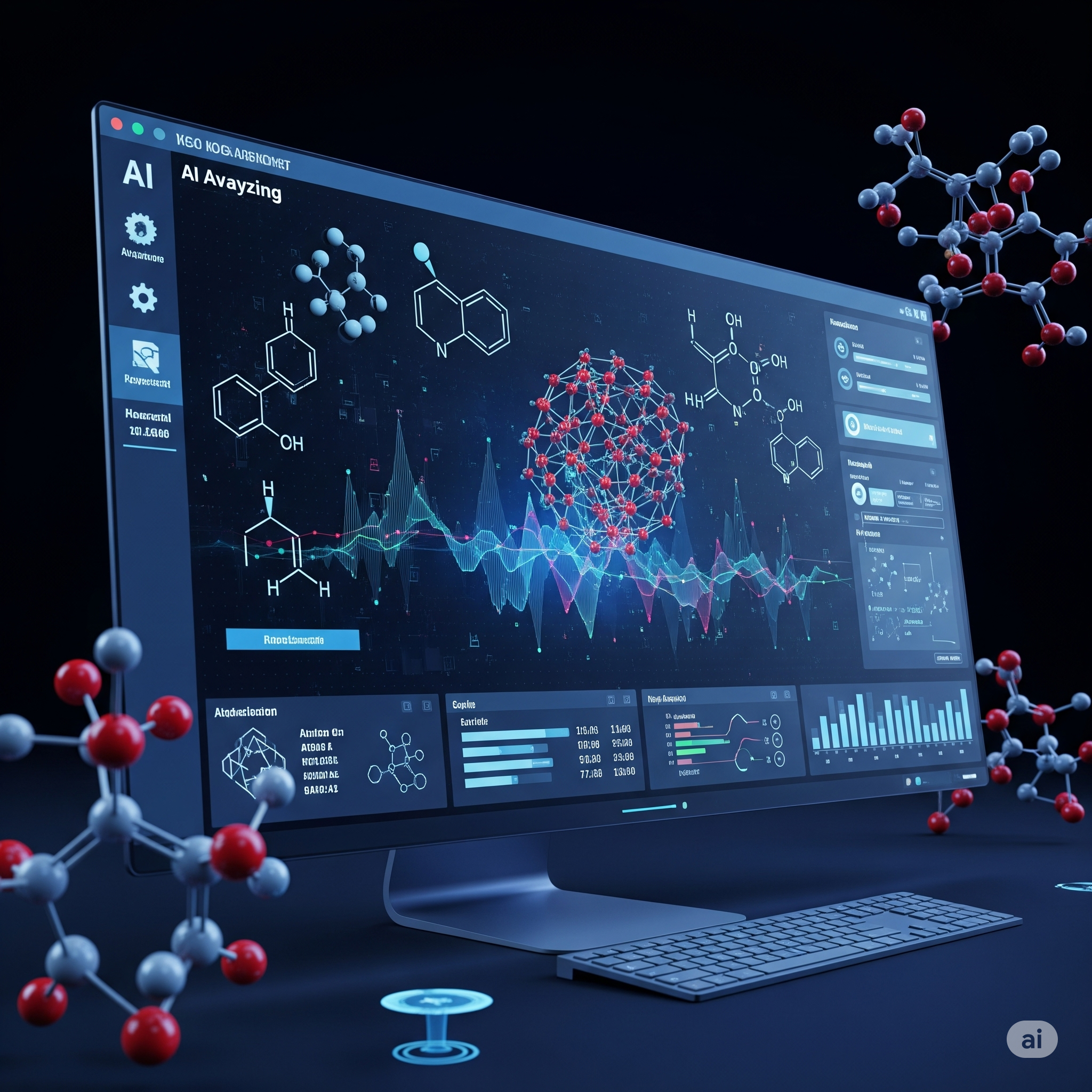In a significant leap for molecular science, artificial intelligence has demonstrated its remarkable potential to decipher previously incomprehensible data, leading to the groundbreaking discovery of an estimated 200 million “mystery molecules.” This revelation, powered by a novel AI system named DreaMS, promises to revolutionize our understanding of the complex molecular landscapes found in diverse environments, from the natural world to the human body, with potential implications reaching as far as Ethiopia’s burgeoning scientific community.
Mass spectrometry, a powerful analytical technique often likened to forensic science at the molecular level, has long been a cornerstone of chemical analysis. This process generates intricate “fingerprints” of molecules based on their mass-to-charge ratio. However, the sheer volume and complexity of data produced have often presented a significant bottleneck, requiring extensive human expertise and predefined rules for interpretation – a limitation that DreaMS has effectively overcome.
Developed and trained on an expansive dataset of approximately 700 million known chemical fingerprints originating from sources as varied as plants, soil, food, and the human microbiome, DreaMS employs a fundamentally different approach. Unlike traditional methods reliant on explicit programming and human intervention, this AI system exhibits an innate ability to identify subtle patterns and hidden correlations within the data. It “vibes with the data,” as some researchers describe it, autonomously discerning relationships that would likely remain invisible to conventional analysis.
This innovative capability has already yielded compelling insights, including the identification of potential links between environmental contaminants like pesticides and human health conditions such as skin diseases. This highlights the transformative power of DreaMS in uncovering previously unknown connections and potentially informing future research into disease etiology and environmental impacts – areas of critical importance in Ethiopia, where agricultural practices and environmental health are key concerns.
Furthermore, DreaMS has demonstrated an impressive capacity for independent learning. Notably, the AI system was able to identify the spectral signature of fluorine, a crucial element frequently incorporated into pharmaceutical compounds, simply by observing the behavior of molecules within the vast dataset. This ability to autonomously recognize complex molecular features underscores the advanced nature of DreaMS and its potential to accelerate the discovery of novel molecules with valuable applications in medicine and beyond.
The implications of this breakthrough are far-reaching. The ability to rapidly analyze and interpret complex mass spectrometry data opens up new avenues for:
- Drug Discovery: Identifying novel bioactive molecules with therapeutic potential.
- Environmental Monitoring: Detecting and understanding the impact of pollutants on ecosystems and human health.
- Food Science: Characterizing the complex molecular composition of food and its effects on nutrition and well-being.
- Biomedical Research: Gaining deeper insights into the molecular mechanisms underlying biological processes and diseases.
For Ethiopia’s scientific community, this development offers exciting prospects for collaboration and the application of advanced AI tools to address local challenges in areas such as agricultural productivity, biodiversity research, and public health. Access to and understanding of such technologies could significantly enhance local research capabilities and contribute to evidence-based policy making.
The discovery of 200 million mystery molecules marks a paradigm shift in molecular science. DreaMS represents a powerful new tool that transcends the limitations of traditional analytical methods, ushering in an era of accelerated discovery and a deeper understanding of the intricate molecular world that surrounds and comprises us. As AI continues to evolve, its capacity to unlock hidden knowledge within complex datasets holds immense promise for scientific advancement across diverse fields and geographies.
Discover more from Nexus
Subscribe to get the latest posts sent to your email.
